 75 years after the Nakba that expelled Palestinians from their homes, a new Nakba is happening. Western governments blindly censor Palestinian voices. Israel exports its police and military methods to the ‘civilized world’, while South Africa recognizes another Apartheid happening.
75 years after the Nakba that expelled Palestinians from their homes, a new Nakba is happening. Western governments blindly censor Palestinian voices. Israel exports its police and military methods to the ‘civilized world’, while South Africa recognizes another Apartheid happening.
The Jews who survived the horrors of the Nazi Holocaust and before that the Russian pogroms finally achieved a state of their own, but promptly expelled 700,000 Palestinians from their ancestral lands with the silent connivance of the West.
The Nakba or Catastrophe descended on the Palestinians and despite many UN resolutions there has been no return, in fact a new Nakba is happening within Gaza. Denial and a refusal to look in the mirror of history are everywhere. The Israeli State – unlike many of its people – cannot see in today’s Palestinians a reflection of their own antecedents herded into ghettos and murdered in concentration camps, nor the comparison with Apartheid South Africa.
And in Europe and the US, government denial continues to give the Israeli State unlimited military and economic aid with no serious attempts to demand justice for the Palestinians.
France bans Palestinian flags, Germany represses pro-Palestinian demonstrations and in the US, news reports are ethnically cleansed of anything that might portray Palestinians in a favourable light or denounced as anti-semitism. But the government-approved mirror is cracking as huge numbers of people stand up for natural justice for the Palestinians.
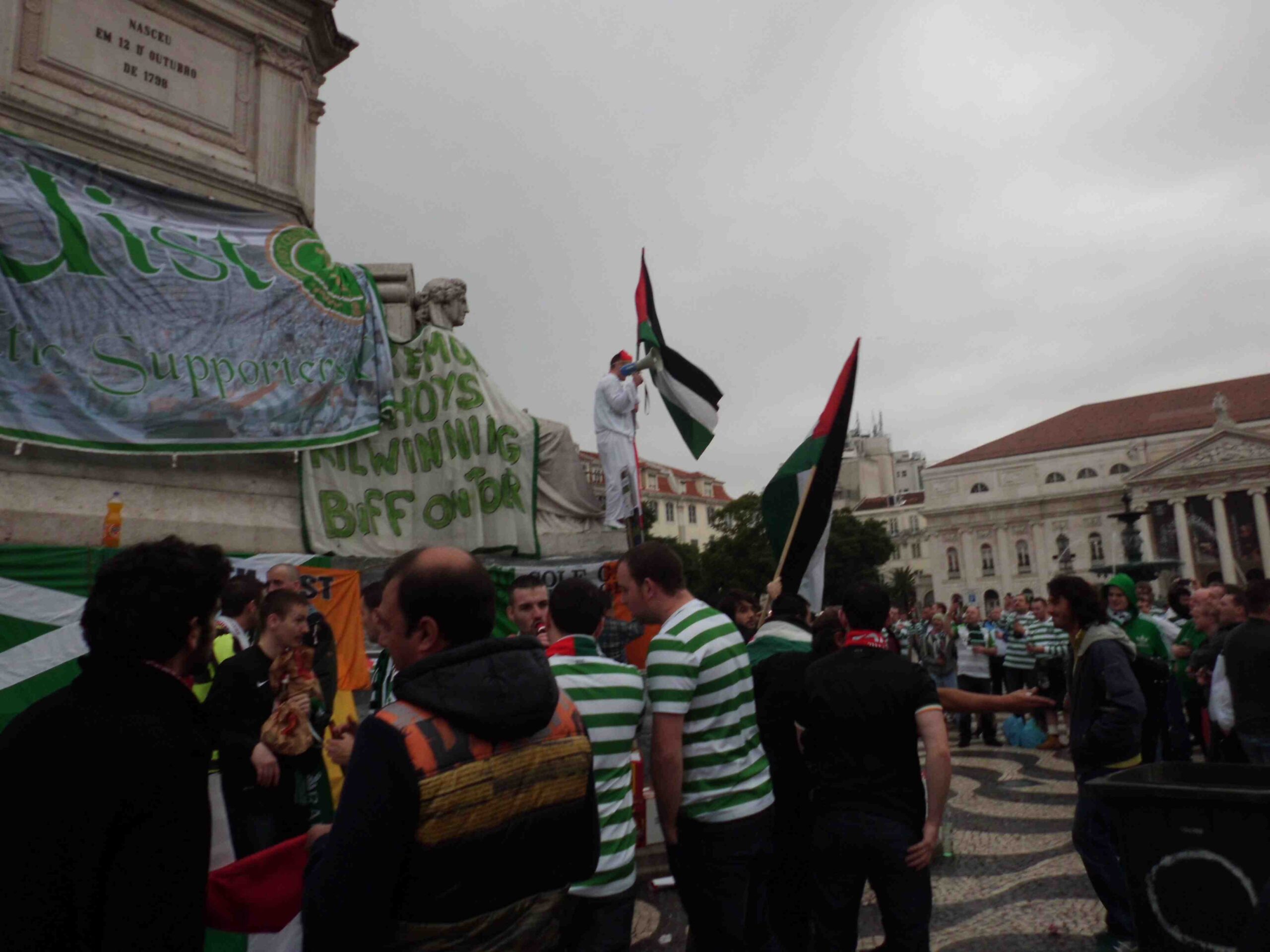 Palestinians are Semitic people too, and the 45,000 killed by the Israeli army are the latest in a long history of repression, that goes back to the time of Napoleon and the mass slaughter by the French occupiers in 1910, which are documented in an Al-Jazeera film and TV series.
Palestinians are Semitic people too, and the 45,000 killed by the Israeli army are the latest in a long history of repression, that goes back to the time of Napoleon and the mass slaughter by the French occupiers in 1910, which are documented in an Al-Jazeera film and TV series.
For The Prisma, I spoke to Elsa Sertorio and Shahd Wadi, members of the Boycott Divestment and Sanctions (BDS) movement in Portugal. They talked about these issues, the way that Gaza has become an opportunity for testing weapons that are sold by Israeli defence companies. And they made clear that a movement which seeks to boycott activities connected to the government of Israel cannot be compared in any way to the Nazi boycotts of Jewish shops in 1938-39.
Large companies are making profits selling arms to Israel. What can the BDS movement achieve when governments ignore protest?
Elsa Sertorio: The BDS movement calls for embargoes on arms for Israel and is putting pressure on governments not to send weapons to Israel. Dockers in Barcelona, Genoa and in the UK are refusing to load arms cargoes.
Shahd Wadi: One reason for keeping Gaza under occupation and bombarding it is that the Israeli military is testing its own weapons.
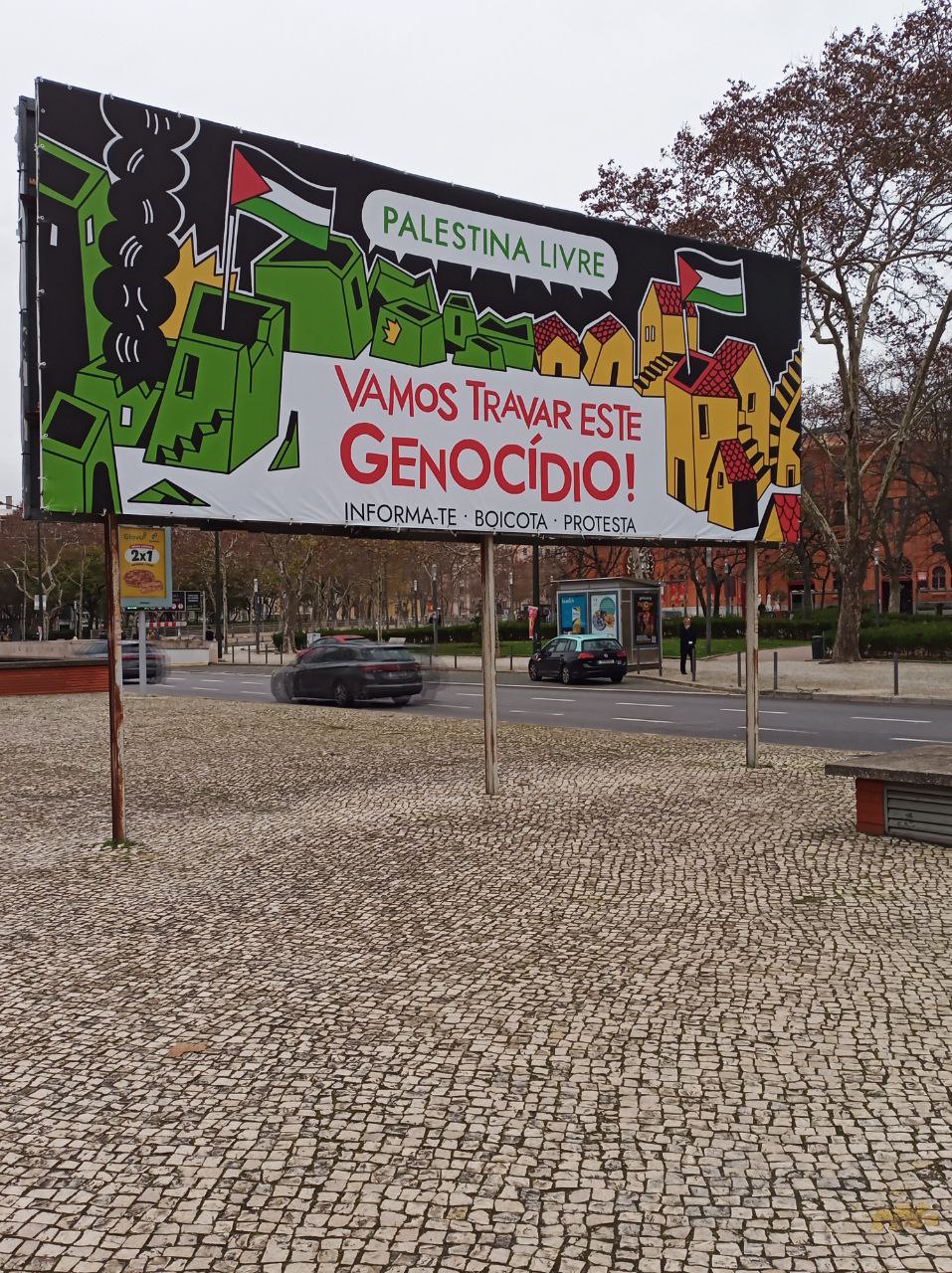
They did this in 2008-09, and in the 2014 war they were able to increase sales of their own weapons (Elbit Systems), and they are doing it again, including using weapons that cause different kinds of burns such as Phosphorus.
Countries that take a stand with Palestine, are being punished by Israel by suspending its sales to these countries, as happened with Colombia.
People picketed an arms factory in the UK and there were protests in Norway against manufacturers exporting arms to Israel being used in genocide by evading the law and selling through other countries. Antony Loewenstein, in his book “Palestine Laboratory” says that the Israeli government is not just selling weapons but also the ideology that says they can be used with impunity, and it is very important globally to stop these weapons being used.
Looking at your map, Apartheid-Free Zones are very developed in countries where legislation is not being used against anti-apartheid protests.
ES: The map is not up to date – there is only one flag for Portugal but actually there are nine AFZ’s working now.
SW: AFZ’s are local campaigns of proactive solidarity which are important because many people want to know that they are not supporting the Israeli apartheid regime, whether owners of bars, restaurants, libraries, and people who frequent these places. It is very intersectional, about other kinds of injustice too, not just Palestine. But it’s less important on an international map.
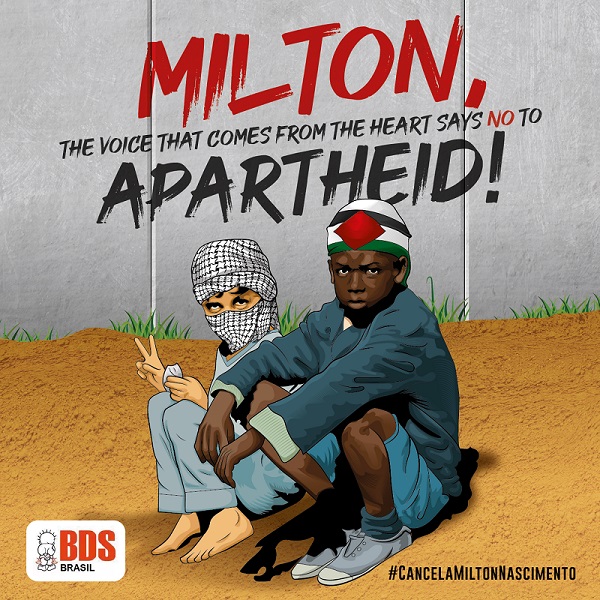 The Portuguese parliament passed a resolution last year recognizing the Nakba when 700,000 Palestinians were expelled from Palestine. Does this amount to a legal guarantee that the BDS movement will not be harassed?
The Portuguese parliament passed a resolution last year recognizing the Nakba when 700,000 Palestinians were expelled from Palestine. Does this amount to a legal guarantee that the BDS movement will not be harassed?
ES: A resolution is not a guarantee of anything. So far, the BDS movement has not been repressed in Portugal, but it depends on Portugal’s relationship with Israel and the strength of the Israeli lobby which is growing here. But in the arts and academic institutions the BDS movement is getting stronger. What is needed is a resolution recognising the Nakba, happening now in Gaza.
SW: It expressed solidarity on the 75th anniversary of the Nakba, but it didn’t say we support the Palestinians’ right to return or to resist the occupation. It was symbolic but it was welcome. The recent protests were calling for the parliament to support a policy of BDS and this is what they should do.
Right wing parties in Portugal are on the rise. Do you see government becoming more pro-Israel after the next election?
ES: Right-wing governments tend to be more pro-Israel.
SW: In 2019, the political program of the party Chega contained the following statement, (on p. 33) which supposedly linked the defence of Israel to the fight against Islamic radicalism. In their opinion, the “danger” comes from the southern Mediterranean and the solution will be investment in Israel’s defence policy and the “transfer of the Portuguese Embassy to Jerusalem”.
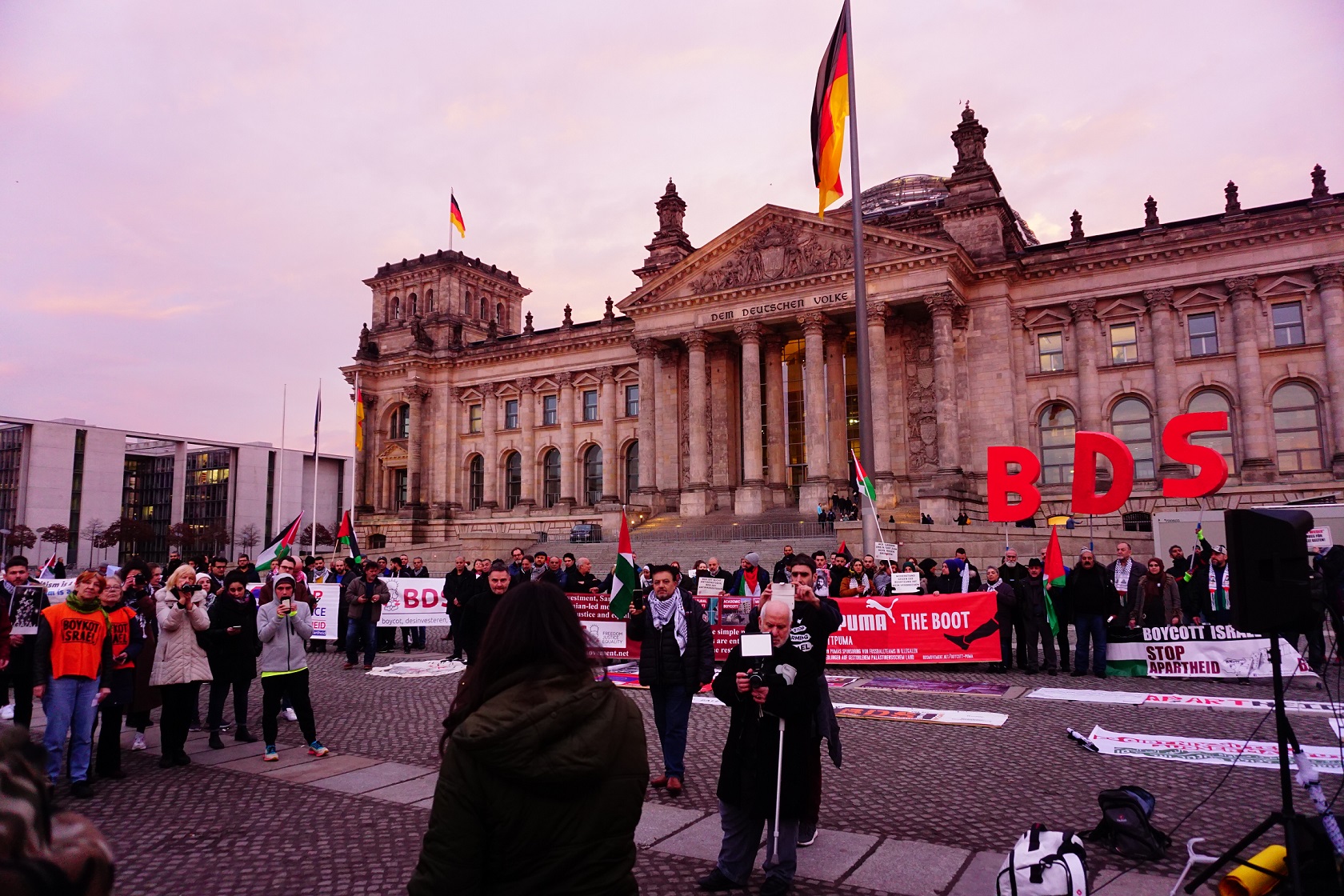 This is the only way “to limit Islamic radicalism”, according to them and their leader André Ventura has made a declaration in favour of Israel even during the latest genocide.
This is the only way “to limit Islamic radicalism”, according to them and their leader André Ventura has made a declaration in favour of Israel even during the latest genocide.
Portugal and some of the states where BDS is strongest signed up to the Law-Train 2020 project, which involved sharing and standardizing interrogation methods. What has happened to this since 2016 when Portugal joined?
SW: The Law-Train is a police cooperation project, coordinated by the Israeli government, in which Portugal was involved, but the Portuguese Ministry of Justice withdrew from it shortly after due to pressure from civil society organizations. It sought to unify police interrogation methodologies and one of the participating bodies was the Israeli Ministry of Public Security, which is responsible for the Israeli police and prison forces, forces that have already been denounced for their mistreatment and torture of Palestinian prisoners and physical and psychological violence against the Palestinian people.
ES: We campaigned with another group, Movimento pelos direitos do povo Palestina e pela paz no medio oriente (MPPM) and the left-wing parties in parliament, Bloco de Esquerda (BE) and the Portuguese Communist Party (PCP).
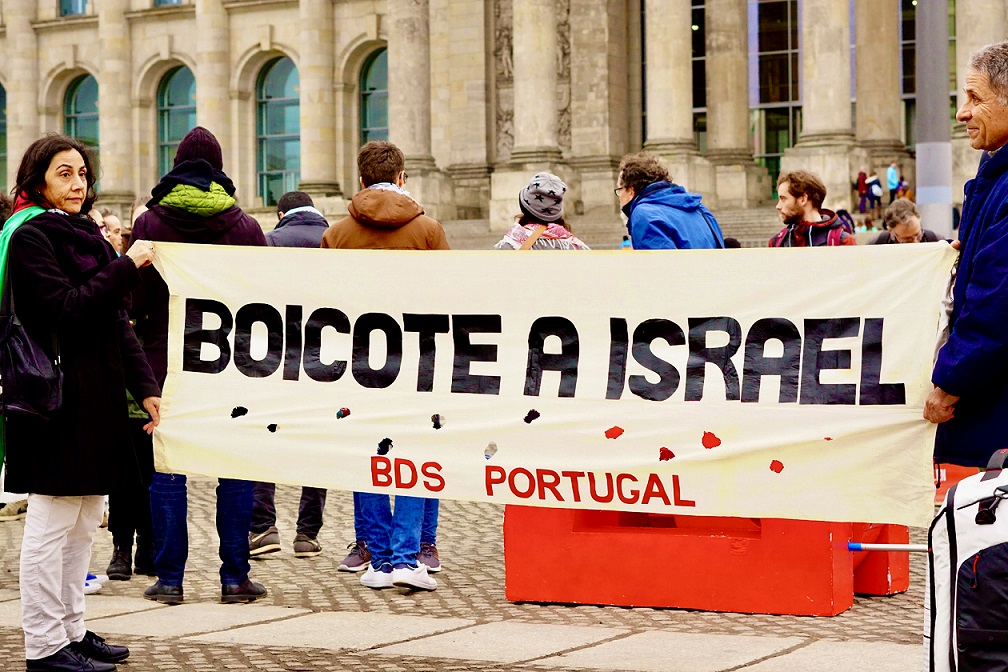 Jewish people are sensitive to the idea of boycotts of businesses because the Nazis employed this technique before World War 2.
Jewish people are sensitive to the idea of boycotts of businesses because the Nazis employed this technique before World War 2.
ES: The Nazi’s boycott of Jewish businesses was an anti-semitic persecution and BDS is a campaign against racism and ethnic cleansing. We talk about a boycott which is not against Jews, but a State and institutions or companies that are complicit in this colonial project. We don’t accept any argument that seeks to compare the victims of Nazism with the rulers of Israel.
SW: Well, why don’t they refer to the boycott in South Africa which was a boycott against the apartheid regime? There is a Palestine BDS movement in South Africa now and they are inspired by their experience during apartheid there. The case at the International Court of Justice (ICJ) is important and in the global South the myth of the ‘White Saviour’ is disappearing. There were very close links between Israel and the Nationalist government in South Africa and they often spoke about their similarities. Israel had a strong alliance with the apartheid regime and even cooperated in the development of nuclear weapons. This relationship culminated in a visit by South African politician John Vorster, one of the figures who reinforced the policies of racial segregation by sentencing Nelson Mandela to life imprisonment.
 Israel received him in 1976, completely ignoring the fact that he was a supporter of Hitler and a member of the openly anti-Semitic and fascist organization Ossewabrandwag. The relationship between the two states was so close that Israel cooperated with the South African army in Angola. At the end of the 1970s, the apartheid regime in South Africa was Israel’s biggest arms customer.
Israel received him in 1976, completely ignoring the fact that he was a supporter of Hitler and a member of the openly anti-Semitic and fascist organization Ossewabrandwag. The relationship between the two states was so close that Israel cooperated with the South African army in Angola. At the end of the 1970s, the apartheid regime in South Africa was Israel’s biggest arms customer.
Have there been cases of police intimidation of people showing support for Palestine?
ES: I don’t know any cases involving police or the government against the BDS campaign. But in 2014 Google closed our email account, claiming we failed to comply with the values of the company. Recently a pro-Palestinian group had its Instagram account deleted and many Facebook posts of pro-Palestinian people are being deleted.
SW: And after the recent protest the police harassed the protesters on different occasions, but still Portugal is more relaxed in these matters than some countries.
(Photos supplied by the interviewees and authorised for publication.)

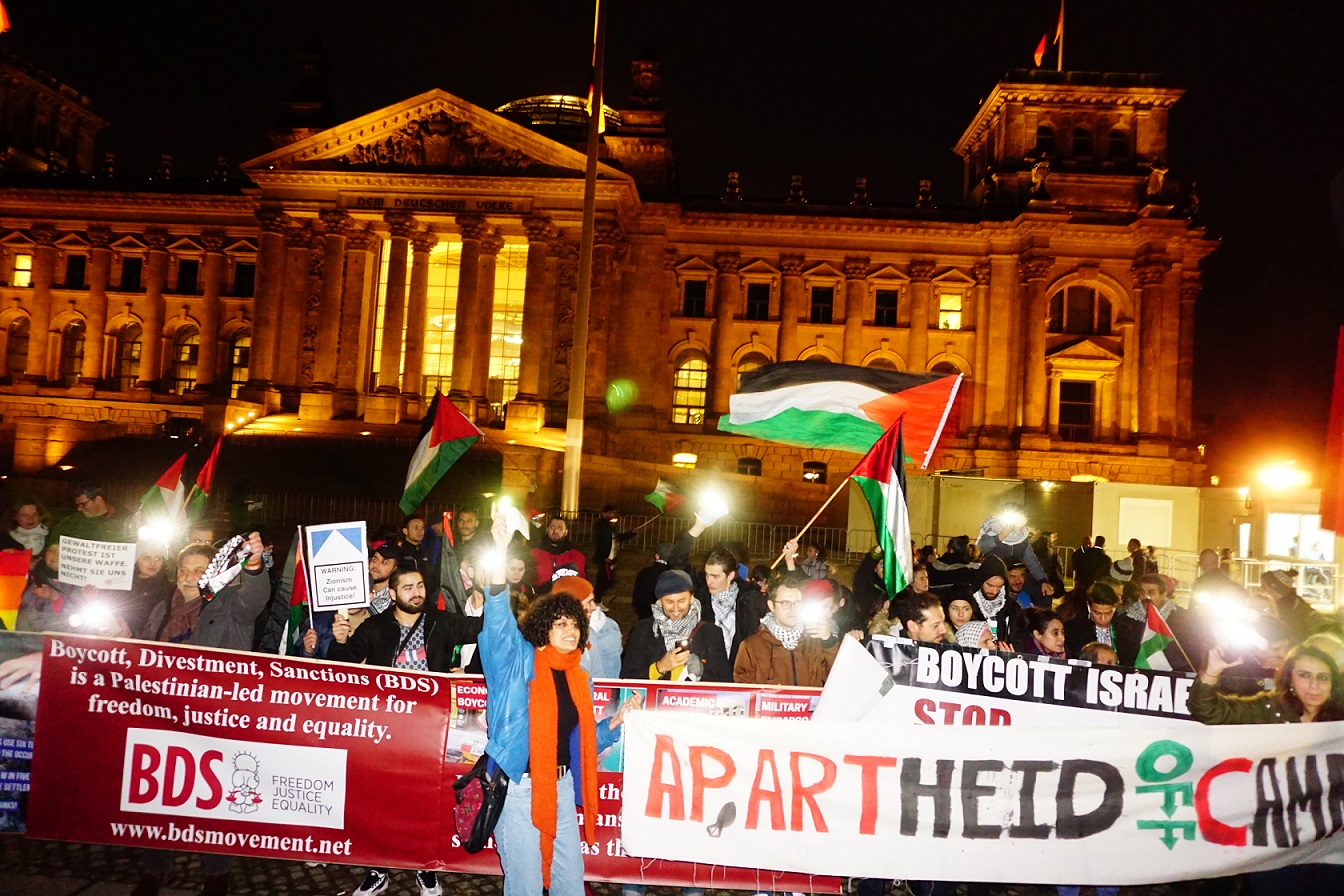 Graham Douglas / The Prisma
Graham Douglas / The Prisma











.jpg)












